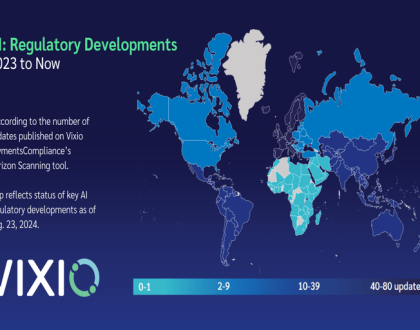Payment Agents – The Weak Link in Financial Transactions?

Finance is a critical backbone of our economy, yet I often wonder about the vulnerabilities in our financial transactions, particularly when it comes to payment agents. In this post, I aim to unravel the role of payment agents and examine whether they may indeed represent a weak link in the process. As I research into their responsibilities, the risks involved, and potential impacts on your finances, I hope to equip you with the knowledge needed to safeguard your transactions in an increasingly digital marketplace.
The Role of Payment Agents
While payment agents are crucial intermediaries in the financial transaction landscape, their effectiveness can sometimes be overshadowed by vulnerabilities. They facilitate the movement of funds between consumers and merchants, ensuring that payments are processed smoothly and securely. However, understanding their role and the potential risks involved is important for anyone engaging in financial transactions.
Definition and Functionality
To grasp the significance of payment agents, we must first define their core functionality. Payment agents serve as intermediaries that help facilitate electronic transactions between buyers and sellers. They play a vital role in ensuring secure payment processing, fraud prevention, and maintaining the necessary records of transactions for both parties.
Types of Payment Agents
Another aspect worth exploring is the various types of payment agents in the market. These agents differ in terms of their functionalities and target audiences, providing specific services tailored to meet diverse transaction needs. Here's a summary of the main types:
| Type | Description |
|---|---|
| Merchant Account Providers | Facilitate merchants in accepting credit card payments. |
| Payment Gateways | Process transactions and authorize credit card payments online. |
| Mobile Payment Agents | Enable transactions via mobile devices, using apps. |
| Cryptocurrency Payment Agents | Allow for transactions using cryptocurrencies like Bitcoin. |
| Third-Party Processors | Handle transactions and payroll on behalf of businesses. |
- Assume that you are a merchant; selecting the right payment agent is crucial for effective transaction processing.
Understanding the diverse types of payment agents helps you navigate the financial landscape more effectively. Each type provides specific features and functionalities to address the needs of various users. Make sure to evaluate the services offered before deciding on a payment agent.
| Type | Common Features |
|---|---|
| Merchant Account Providers | High transaction limits, chargeback management. |
| Payment Gateways | Encryption, fraud detection. |
| Mobile Payment Agents | User-friendly apps, instant notifications. |
| Cryptocurrency Payment Agents | Decentralization, low transaction fees. |
| Third-Party Processors | Integration with various platforms, detailed reporting. |
- Assume that you regularly process payments; choosing the right type of payment agent can significantly enhance your transactional efficiency.
Vulnerabilities in Payment Systems
Assuming you engage in digital financial transactions, you may be surprised to learn about the significant vulnerabilities embedded in payment systems. These weaknesses range from technical flaws in software to human errors and can lead to unauthorized access, fraud, and data breaches, ultimately eroding trust in the entire payment ecosystem.
Security Risks
With the increasing sophistication of cyber-attacks, payment systems are vulnerable to various security risks. Every transaction you execute carries the potential for interception by malicious actors, who may exploit weak authentication methods or poorly encrypted data. As a result, the integrity of your financial information may be jeopardized.
Regulatory Challenges
Vulnerabilities in payment systems often persist due to a lack of cohesive regulatory frameworks, which can hamper effective oversight. Different jurisdictions may implement varying standards, leaving gaps that can be exploited by bad actors. This fragmented approach not only complicates compliance for payment agents but also places your financial security at risk.
Payment regulations are critically important in establishing standardized practices across various jurisdictions. However, I find that the absence of a comprehensive global framework often leads to inconsistencies and loopholes that can be exploited. The challenge lies in balancing innovation with the need for stringent regulations, ensuring that your transactions remain secure while fostering a thriving digital finance landscape. Without this balance, payment agents may remain a weak link in the security of your financial transactions.
Impact on Consumers and Businesses
Some consumers and businesses face significant challenges due to the role payment agents play in financial transactions. As intermediaries, they can enhance convenience but also introduce risks, affecting trust levels. This can lead to hesitance in using digital payment platforms, ultimately hindering growth and profitability for businesses. Understanding these impacts is crucial for both parties to navigate the future landscape of financial transactions effectively.
Trust Issues
Businesses often find themselves navigating a landscape of skepticism regarding payment agents. When transactions are involved, it is vital that you, as a business owner, ensure your customers feel secure. If your payment agent has a history of breaches or dubious practices, it can erode trust and deter potential clients, negatively impacting your bottom line.
Financial Losses
Impact of unreliable payment agents can manifest in financial losses that stretch beyond mere revenue dips. If a payment agent mishandles transactions or experiences security breaches, you may face chargebacks, lost sales, and potential legal fees. The consequences can be devastating for small businesses, leading to cash flow issues and, in severe cases, jeopardizing your entire operation.
Another aspect to consider is the long-term financial implications of using unreliable payment agents. If you encounter repeated issues, not only could you lose existing customers, but potential clients may also opt for competitors who offer more secure transaction methods. This cycle of financial losses can create a significant burden that impacts your overall business strategy and growth plans.
Advances in Payment Technology
Many advancements in payment technology are reshaping the financial landscape and addressing the vulnerabilities inherent in traditional transaction methods. As we rapidly move towards a cashless society, innovations such as blockchain, biometric verification, and artificial intelligence are not only streamlining payment processes but also enhancing security measures to protect sensitive financial information. It is crucial for you to stay informed about these technologies, as they have the potential to significantly impact your transactions and financial interactions.
Innovations Addressing Weak Links
Links between different payment systems often create opportunities for breaches, but recent innovations aim to fortify these vulnerabilities. New encryption techniques, secure API integrations, and real-time fraud detection systems enhance the trustworthiness of payment agents. I believe that, as these solutions become more widely adopted, my transactions will be safeguarded against potential exploitation, allowing for a smoother, safer payment experience.
Future Trends in Payment Security
Future trends in payment security indicate a shift towards decentralized systems and improved user authentication methods. As technology evolves, I foresee an increase in adoption of two-factor authentication and blockchain-based verification, making it harder for fraudsters to compromise transactions.
Innovations in payment security are set to revolutionize how financial transactions are conducted. By employing advanced biometric identification—such as facial recognition and fingerprint scanning—along with machine learning algorithms to analyze behavioral patterns, future payment systems will become more resilient against cyber threats. I see this as a proactive approach to address vulnerabilities, ensuring that you can conduct transactions with peace of mind, knowing that your financial security is being prioritized.
Best Practices for Choosing Payment Agents
Not all payment agents are created equal, and selecting the right one is crucial to safeguarding your financial transactions. I recommend conducting thorough research and assessing the reputation of potential agents. Consider factors like their experience, customer service, and technological capability to ensure a seamless payment process for you and your clients.
Evaluating Agent Credibility
The credibility of payment agents can significantly influence the security of your transactions. I suggest looking into their track record and checking for reviews from other businesses. Ensuring they have a transparent business structure and solid credentials can provide peace of mind when handling your financial dealings.
Importance of Compliance and Regulation
Credibility of payment agents is deeply intertwined with their adherence to regulations and compliance standards. I cannot stress enough how crucial it is to choose agents that operate under relevant laws and regulations, as this protects you from potential fraud and ensures that your funds are in safe hands.
Plus, being compliant with regulatory standards not only enhances the credibility of the payment agent but also builds trust with your customers. When you work with agents who follow guidelines set by authorities, you minimize the risk of legal repercussions. This added layer of security makes a significant difference in the reliability and integrity of your financial transactions.
The Future of Payment Processing
After examining the current landscape of payment agents, I'm excited about the future of payment processing. Innovation in technology promises to enhance security measures, improve user experiences, and establish more reliable transaction channels. As we continue to evolve, the possibilities seem endless, making it necessary for businesses to stay informed and adaptable to the upcoming changes.
Emerging Solutions
With the rise of new technologies like blockchain and artificial intelligence, I see various emerging solutions that could revolutionize payment processing. These innovations promise to enhance transaction speed and security while reducing costs, ultimately providing a better experience for both businesses and consumers.
Potential Shifts in Industry Standards
Processing these changes in payment methods requires a shift in industry standards. As I look to the future, I recognize the need for more robust regulations and best practices to address the evolving complexities of digital transactions. This will not only protect consumers but also ensure that businesses can adapt seamlessly to new financial technologies.
The shift in industry standards will likely focus on enhancing security protocols, standardizing compliance measures, and fostering greater interoperability between payment systems. As I consider these changes, it becomes clear that collaboration among financial institutions, technology providers, and regulatory bodies will be paramount. Together, we can develop a more resilient payment ecosystem that is well-equipped to handle the challenges and opportunities of the digital age.
Final Words
Ultimately, I believe that while payment agents play a crucial role in facilitating financial transactions, they also represent a potential weak link that can expose individuals and businesses to risks. It is vital for you to exercise due diligence and choose reputable agents, implement strong security measures, and remain vigilant against fraud. By understanding the complexities and challenges associated with payment agents, you can better protect your interests and ensure smoother, safer transactions in today's digital economy.
FAQs
What are payment agents and what do they do?
Payment agents are intermediaries that facilitate electronic transactions between buyers and sellers, ensuring secure payment processing and fraud prevention.
What types of payment agents are there?
Common types include merchant account providers, payment gateways, mobile payment agents, cryptocurrency payment agents, and third-party processors.
What vulnerabilities exist in payment systems?
Payment systems can face vulnerabilities such as technical flaws, human errors, and insufficient regulatory oversight, leading to risks like fraud and data breaches.
How can I choose a reliable payment agent?
Evaluate their reputation, compliance with regulations, customer reviews, and technological capabilities to ensure they provide secure and efficient services.
What future trends should I be aware of in payment security?
Expect advancements in decentralized systems, enhanced user authentication methods, and the use of AI and blockchain technologies to improve transaction security.
Recommended Posts

Sportingtech Boosts Security with Continent 8
October 4, 2024

Playnetic Gains MGA Approval for Expansion
October 3, 2024

AI Regulation in Payments and Gambling
October 2, 2024



